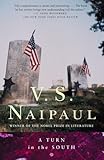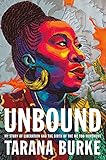My 2021 reading felt scattered and voracious but on reflection, I noticed a pattern: I read books about facing disaster and I read books about transformation and reimagination. This makes sense, I guess, given the history we’re currently living.
Gabriel Garcia Marquez’s The Story of a Shipwrecked Sailor was written as a series of articles when Marquez was a reporter for El Espectador in Venezuela. It tells the story of a Venezuelan ship that capsized on a journey from Mobile, Ala., back home in 1955. What I love about it is it anticipates his later work as a novelist and provides a potent example of how no fiction can have as much urgency, creativity of form, and narrative propulsion as fiction.
Borges’s On Writing is a collection of seminars he delivered at Columbia gathered into a book. The book is about craft, but it is also masterful storytelling on its own terms. I was especially struck by the following passage about why fiction has to be realistic in a way reality doesn’t “Reality is not always probably or likely. But if you’re writing a story, you have to make it plausible as you can, because otherwise the reader’s imagination will reject it.” I love that, and I think it’s true even with speculative fiction. We have to believe how characters make sense of even the strangest encounter.
 I also read Natalia Ginzburg’s Voices in the Evening which is about a family in Post War Italy. It resonated so deeply because she handles the arbitrariness of decision making, especially political decision making that has major consequences on our world. All sorts of dispositions and quirks shape where people find themselves in the aftermath of the disaster of fascism. It’s not all noble, sometimes is horrible, and yet it is also quite mundane.
I also read Natalia Ginzburg’s Voices in the Evening which is about a family in Post War Italy. It resonated so deeply because she handles the arbitrariness of decision making, especially political decision making that has major consequences on our world. All sorts of dispositions and quirks shape where people find themselves in the aftermath of the disaster of fascism. It’s not all noble, sometimes is horrible, and yet it is also quite mundane.
 Also, in 2021 I read everything I could get my hands on by Gayl Jones. But her 1998 novel, The Healing, about a faith healer felt especially necessary this year. It wasn’t released to acclaim but it’s a masterpiece as far as I am concerned in that she doesn’t hesitate to show a complete Black woman, from her thoughts about haircare to political philosophy to romantic entanglements. I think readers may have found it unrealistic. But to me, it is more than plausible.
Also, in 2021 I read everything I could get my hands on by Gayl Jones. But her 1998 novel, The Healing, about a faith healer felt especially necessary this year. It wasn’t released to acclaim but it’s a masterpiece as far as I am concerned in that she doesn’t hesitate to show a complete Black woman, from her thoughts about haircare to political philosophy to romantic entanglements. I think readers may have found it unrealistic. But to me, it is more than plausible.
 Intermittently, I re-read essays from Arundhati Roy’s book of collected nonfiction, My Seditious Heart. I just love the way she writes about land and people. All kinds of political configurations and conflicts get boiled down to the basic relations of humanity and environment. In her nonfiction, she shares the sort of thick description that we usually experience with fiction and it really works because you read for the substance not the confirmation or rejection of a position you have claimed.
Intermittently, I re-read essays from Arundhati Roy’s book of collected nonfiction, My Seditious Heart. I just love the way she writes about land and people. All kinds of political configurations and conflicts get boiled down to the basic relations of humanity and environment. In her nonfiction, she shares the sort of thick description that we usually experience with fiction and it really works because you read for the substance not the confirmation or rejection of a position you have claimed.

 On the opposite side of the political spectrum, I re-read V.S. Naipaul’s A Turn in the South. Given his frequently disturbing disposition towards his native Guyana, I was initially skeptical about his 1989 book about traveling in the South. But it is filled with remarkable moments of insight and encounter. I’m fascinated though about his having published it right after James Baldwin’s Evidence of Things Not Seen, and despite the way they showed up in so many of the same places, Naipaul summarily ignores that breathtaking text. Read Evidence now and check out Atlanta politics. It’s astonishing how prescient Baldwin was.
On the opposite side of the political spectrum, I re-read V.S. Naipaul’s A Turn in the South. Given his frequently disturbing disposition towards his native Guyana, I was initially skeptical about his 1989 book about traveling in the South. But it is filled with remarkable moments of insight and encounter. I’m fascinated though about his having published it right after James Baldwin’s Evidence of Things Not Seen, and despite the way they showed up in so many of the same places, Naipaul summarily ignores that breathtaking text. Read Evidence now and check out Atlanta politics. It’s astonishing how prescient Baldwin was.


 Also, there were so many outstanding new books published this year that I’m honestly hesitant to single any out. Generally, it was a banner year for activist and intellectual memoirs, and for works pushing the boundaries of style and form. Likewise, Tarana Burke’s memoir UnBound, Derecka Purnell’s Becoming Abolitionists, and Marlon Peterson’s Bird Uncaged, all beautifully reimagined the bildungsroman, writing their lives as the coming of age stories of freedom fighters. Chanda Prescod Weinstein’s The Disordered Cosmos proposes a Black feminist scientific universe and a liberation of the skies, just as Kiese Laymon’s redux of Long Division gave us a speculative fiction Black girl superhero in a deep rooted time traveling Mississippi. Regina Bradley’s Chronicling Stankonia is hip hop cultural criticism, social history, and literary analysis centered in the South and specifically Atlanta, and Farah Griffin’s Read Until You Understand is a story of the creation of a literary critic through her coming of age in Philadelphia.
Also, there were so many outstanding new books published this year that I’m honestly hesitant to single any out. Generally, it was a banner year for activist and intellectual memoirs, and for works pushing the boundaries of style and form. Likewise, Tarana Burke’s memoir UnBound, Derecka Purnell’s Becoming Abolitionists, and Marlon Peterson’s Bird Uncaged, all beautifully reimagined the bildungsroman, writing their lives as the coming of age stories of freedom fighters. Chanda Prescod Weinstein’s The Disordered Cosmos proposes a Black feminist scientific universe and a liberation of the skies, just as Kiese Laymon’s redux of Long Division gave us a speculative fiction Black girl superhero in a deep rooted time traveling Mississippi. Regina Bradley’s Chronicling Stankonia is hip hop cultural criticism, social history, and literary analysis centered in the South and specifically Atlanta, and Farah Griffin’s Read Until You Understand is a story of the creation of a literary critic through her coming of age in Philadelphia.
 I want to end with my cousin Adrienne Maree Brown’s novella, The Grievers. It is the book we need now. Grievers is about a plague in Detroit, and how a young woman makes sense of it. But more than that, it is a profound meditation on grief, ritual, endurance, and the power of imagination and creation. I’ll be re-reading it for years to come.
I want to end with my cousin Adrienne Maree Brown’s novella, The Grievers. It is the book we need now. Grievers is about a plague in Detroit, and how a young woman makes sense of it. But more than that, it is a profound meditation on grief, ritual, endurance, and the power of imagination and creation. I’ll be re-reading it for years to come.
More from A Year in Reading 2021 (opens in a new tab)
Do you love Year in Reading and the amazing books and arts content that The Millions produces year round? We are asking readers for support to ensure that The Millions can stay vibrant for years to come. Please click here to learn about several simple ways you can support The Millions now.
Don’t miss: A Year in Reading 2020, 2019, 2018, 2017, 2016, 2015, 2014, 2013, 2012, 2011, 2010, 2009, 2008, 2007, 2006, 2005
The post A Year in Reading: Imani Perry appeared first on The Millions.










